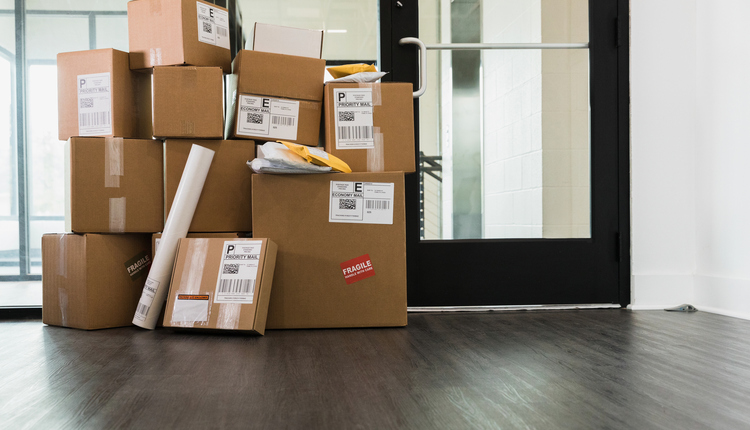This appeared in the November/December, 2018 issue of PARCEL.
Understanding the ins and outs of auditing parcel invoices can be very beneficial to your business since this process provides valuable insight into your organization’s supply chain operations. A thorough parcel audit can generate significant cost reductions and improve operational efficiencies that will drive increased bottom line profits to your business. To better assess the cost-benefit relationship to your business, here are a series of questions to help you determine the potential for achieving these benefits.
1. Am I seeing the relevant discounts or incentives reflected in my pricing?
2. Are my shipments being delivered on time?
3. Am I aware of invalid adjustments?
4. Am I sure claims are filed in the most efficient process?
If you answered no to any of the above questions, there are potential savings opportunities for your organization. Here are several steps to help you better understand invoice auditing and how to realize cost savings arising from invalid charges, filing claims, and other operational improvements.
Understanding Your Contract and the Terms of Your Agreement
It’s crucial to eliminate surprises within your invoice or charges you did not anticipate by identifying key terms of your agreement. For example, is your business eligible for submitting service failures, or are you shipping enough volume to meet volume thresholds aligned with specific incentives or discounts? A good audit starts with negotiating a contract with the carrier and agreeing to terms that are mutually beneficial for both parties involved. Making sure that you understand the terms you are agreeing to as well as the financial impact on the business is extremely important, and being able to connect the dots from a financial perspective back to your individual package is key.
Receiving Electronic Data
Most small-package invoices include thousands of shipments, so receipt of electronic data is a must if you want to efficiently audit and analyze your invoice data. Implementing electronic data interchange (EDI) with your small-package carriers is a great first step to ensure you have the granular, package-level visibility required to audit. Major small-package carriers can provide your data via EDI through online portals available for download – or other electronic formats. This adds value for your business because you will more easily be able to analyze the detail and identify invalid charges that were invoiced to your account.
Identifying Invalid Charges
Filing for a billing adjustment will require small package carriers to invoice for adjustments that are made throughout the delivery process. To deal with these charges, you need tools to identify exceptions like: incorrect pricing, service failures, or duplicate shipments. Look for these items in your data or invoice that ensure you are being billed properly:
Pricing - make sure that you are receiving the discounts and incentives specified in the contract with the carrier.
Service Failures - was the package delivered within the commitment time?
Duplicate Billing- were you billed for the same shipment twice? Other examples of invalid charges to be on the lookout for include: incorrect residential fees; manifested, not shipped packages; address corrections; dimensional weight charges; Saturday fees, etc.
Filing for Claims
Filing for those claims is dependent on the type of claim. Both FedEx and UPS provide online tools and have dedicated credit recovery specialists who can help validate the claim. For incorrect pricing issues, there are additional steps that are required to submit the claim, such as involving your carrier representative on the account. Depending on the scope of the claim, it may not be approved for several weeks. It is also important to understand the timeline for submitting a claim. Generally, there are between 15 and 180 days to submit a claim, depending on the type of claim and carrier. How a claim is awarded is also dependent on the carrier, type of claim that was submitted, and level of detail required. Some carriers require the claim process take place prior to payment of the invoice, and others require that claims are issued on a subsequent invoice. Each carrier has a different process for applying refunds on your account. Knowing the differences and following the proper process is crucial.
Receiving Refunds for Pricing Errors
When charges are misapplied, what steps should you take to obtain a refund? First off, validate that the rates reflect your contract and that all concessions in the agreement are accounted for in your invoice data. Second, quantify the error and the timeframe in which the error is occurring to ensure your claim is within the eligible filing period. Third, notify your representative at the respective carrier that there are issues with your account, outlining the specific shipments that are billed incorrectly per the terms in your agreement. Fourth, receive verification from your account representative that the claim amount is valid and, most important, that the pricing issue is corrected moving forward. Finally, identify the next steps for application of the refund (dependent on the carrier) and follow up to ensure proper resolution for both parties. While rating errors are less common, if missed, they can have a material impact on your transportation budget.
Conclusion
Let’s recap. If you are not seeing correct discounts reflected in your pricing, your shipments are not delivered on time, or you have noticed invalid adjustments, then you need to evaluate your current invoice auditing process. Investing in your invoice audit will ensure that the carriers hold up their end of the agreements and no refund goes unnoticed. The result will be improved cost controls, increased efficiency, and more accurate transportation data.
Kaitlyn Parsons is a Manager of Parcel Audit at enVista and is responsible for preparing audit metrics both internally and externally, in addition to overseeing the analyst team responsible for auditing billions of dollars in enVista’s customers’ small-parcel spend. Prior to her role as manager, she held various positions at enVista, including transportation analyst and parcel audit and team lead.
Click here to return to the auditing topic page.














